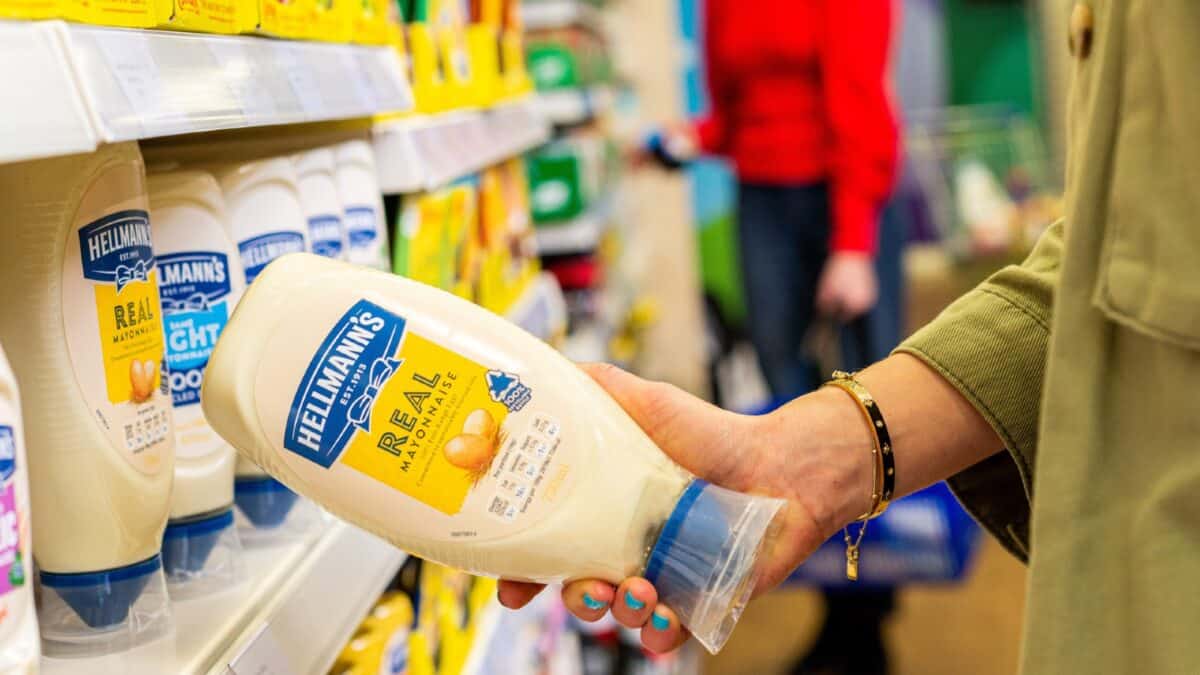Could Unilever (LSE: ULVR) shares be among the best for creating long-term wealth?
If the stock market trauma of the past few years has taught me anything, it’s that I need to hold more defensive shares.
It’s a bit like Warren Buffett‘s first rule of investing: never lose money.
What stock market crash?
Just look at the way the Unilever share price didn’t crash in the 2020 stock market panic.
How many, prior to 2020, were buying shares they thought had the best chance of going up rather than the least chance of going down?
I have my hand up there. I was mostly in financial and house builder stocks.
In a crunch, people can stop borrowing money to buy new homes. But they can’t give up on food.
Progressive dividend
Unilever’s dividend isn’t the biggest. But forecast yields of around 4% aren’t bad. And there’s a long track record of rises.
In the past decade, I see quarterly payments coming in steady, with a nice upward trend. And since Unilver’s restructure in 2020, the payments in euros haven’t faltered.
That’s through soaring inflation and interest rates, global turmoil and rising oil prices.
Exciting? No. Dependable and safe? I’d say so.
Compound returns
Suppose Unilever shares go nowhere in the next 20 years, but the dividend stays at 4%.
Putting £100 per month into Unilever shares for that period could net me £36,500. And if the dividend grows in cash terms, I’d expect some share price gains too.
In fact, over the past 20 years, Unilever shares have climbed 230% — while the FTSE 100 managed just 69%.
I can’t say the same will happen again. But I’d put the odds of Unilever’s business model doing well in the next two decades at better than even.
Cheap now?
Right now, though, I do think inflation has turned some consumers away from Unilever’s well-known brands. And I expect cheaper offerings at the likes of Lidl and Aldi will be cleaning up.
One result is a 5% share price fall in the past five years.
It leaves the stock on a forecast price-to-earnings (P/E) ratio of about 18, dropping to 16 by 2025.
That might not look screaming cheap, but it’s modest by Unilever’s long-term valuation. Over the decades, investors have put a premium on the stock due to its dependability.
Two reasons
I have two reasons to consider buying. One is the dividend. The other is that I think Unilever shares could start to climb again when inflation cools.
Or, at least, when cooling inflation leads to lower interest rates and helps with shoppers’ pockets again.
The main risk I see is that it might not happen for a bit yet. Inflation has fallen. But with pay rises on the up, I suspect we haven’t seen the back of it yet.
Buying opportunity
So we might have a weak Unilver share price for some time to come. Still, that might just keep the shares cheap for long enough for me to finally buy some.








